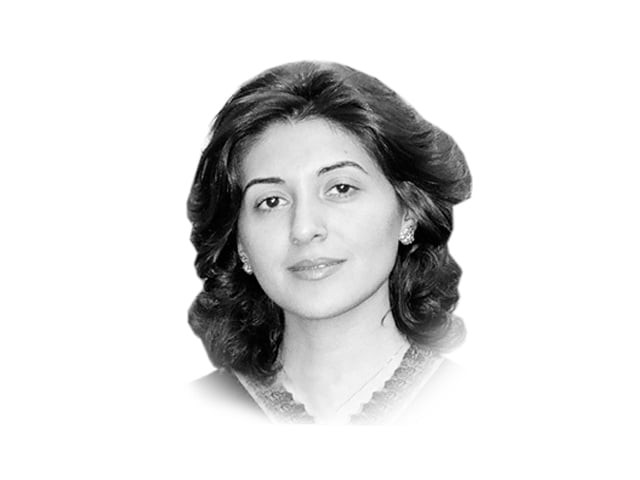Wishful thinking versus reality
We may see rotation of political parties through elections, but we're far from seeing a new vision or positive change.

The writer is a London-based lawyer and tweets @ayeshaijazkhan
Although much ado had been made of an impartial Election Commission, headed by a widely respected figure, Fakhruddin G Ebrahim, little action was taken by him or the commission to level the playing field when some parties could not campaign for fear of their lives, while others canvassed unabated. In the public at large as well, there was little love lost for those politicians who suffered the brunt of the targeting. Perhaps, they were so despised for not delivering basics that the average citizen could not muster any sympathy for those widely believed to have usurped state resources for personal aggrandisement, while the rest are left to 15 hours of power cuts. But there is a danger in such apathy, for it emboldens those who target and the culture of violence takes root. It may be Yousaf Raza Gillani’s son or Ghulam Ahmad Bilour’s brother today but tomorrow, it could very well be those who have just been voted in.
Much is being written on the enhanced voter turnout and the increased awareness and politicisation of the historically apolitical, often referred to in good-natured Pakistani humour as the ‘burgers’. This is all good for democracy and the country we are told, but I am not sold on this logic. Rigging is not new in Pakistan. Surely, it shouldn’t happen but shouldn’t the priority be pre-poll rigging in the form of target-killing or signed agreements disenfranchising the entire female population in certain areas of our country?
Imran Khan is often credited for mobilising the ‘burgers’. Previously disinterested in politics, they fell for Imran’s mantra that the choice was “no longer between left and right but between right and wrong”. His followers, whether 16 or 60, seem to have imbibed that rhetoric and viewed this election as a choice between good (Imran/PTI) and evil (tried and tested parties). The reality, however, is that politics is not about good and evil or right and wrong but about ideological positions. Granted that it’s not just the PTI that is ideologically wanting, Pakistan’s other political parties have also lost their way ideologically, relying instead on patronage and constituency politicians, who hover from party to party, remaining in government incessantly. Thus, though we may see a rotation of political parties through elections, we are far from seeing a new vision or positive change.
The PML-N has rightly been talking about fixing the economy on a priority basis but I wonder if their better minds are able to make the connection between combating terrorism and improving the economy. Often, they seem to have the cause and effect reversed, thinking that an improved economy would result in less terrorism, when in fact it may be very difficult to revive the economy without first tackling terrorism. What’s worse is that since both the PML-N and the PTI are soft on terrorism and have cultivated populism by promising an end to “America’s war”, a wishful segment of the population will continue to expect this of them. It remains to be seen whether they will change their stance when reality strikes or continue to call each other out on showing some ghairat.
Published in The Express Tribune, May 29th, 2013.














COMMENTS
Comments are moderated and generally will be posted if they are on-topic and not abusive.
For more information, please see our Comments FAQ